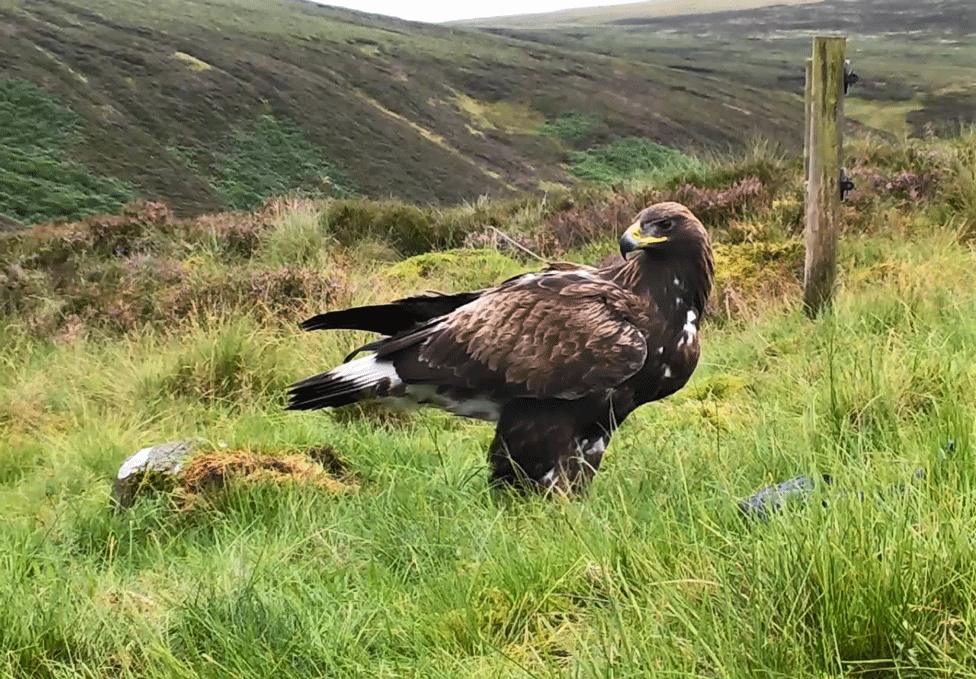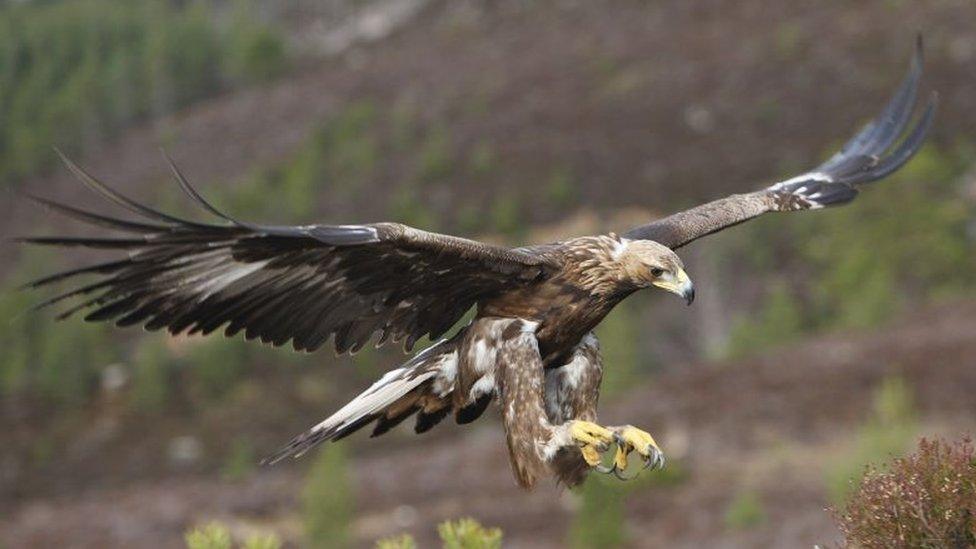Golden eagles reach record numbers in southern Scotland
- Published
Golden eagles are going from strength to strength in southern Scotland
A conservation project to move golden eagles to southern Scotland has helped the population reach record numbers.
There are now about 46 birds in the area - the highest figure recorded in the area for centuries.
Eight chicks were brought to the secret location near Moffat this summer to bring numbers to the current level.
When the South of Scotland Golden Eagle Project (SOSGEP) began five years ago it was thought that only three breeding pairs remained in the area.
The latest chicks came from the Scottish Highlands, Perthshire, Angus and the Scottish islands
SOSGEP also revealed that two birds - Edward and Iona - have formed a nesting pair which should help boost numbers in future.
The announcement comes ahead of Moffat's annual festival celebrating golden eagles.
BBC Springwatch's Iolo Williams, who will speak at the event, said: "The work of this outstanding project is playing a vital role in boosting the small golden eagle population in the south of the country.
"It is brilliant to think that there is an even greater chance of seeing this iconic predator, which is so important to maintaining a healthy ecosystem, soaring in southern skies."

Birds have been brought from other parts of Scotland to the hills near Moffat
Project manager Cat Barlow said it had been an "incredible year" for the project - backed by the National Lottery Heritage Fund.
"We are thrilled to bring eight more chicks to the region - the greatest number we have transported in any one summer so far, bringing the population of golden eagles in the area to an all-new record high," she said.
"And we're incredibly excited to see some of the first birds that we translocated in the area now nesting together.
"This is a significant new step in our work to ensure the south of Scotland golden eagle population is self-sustaining and continues to thrive in southern skies for many generations to come."
Related topics
- Published28 November 2023
